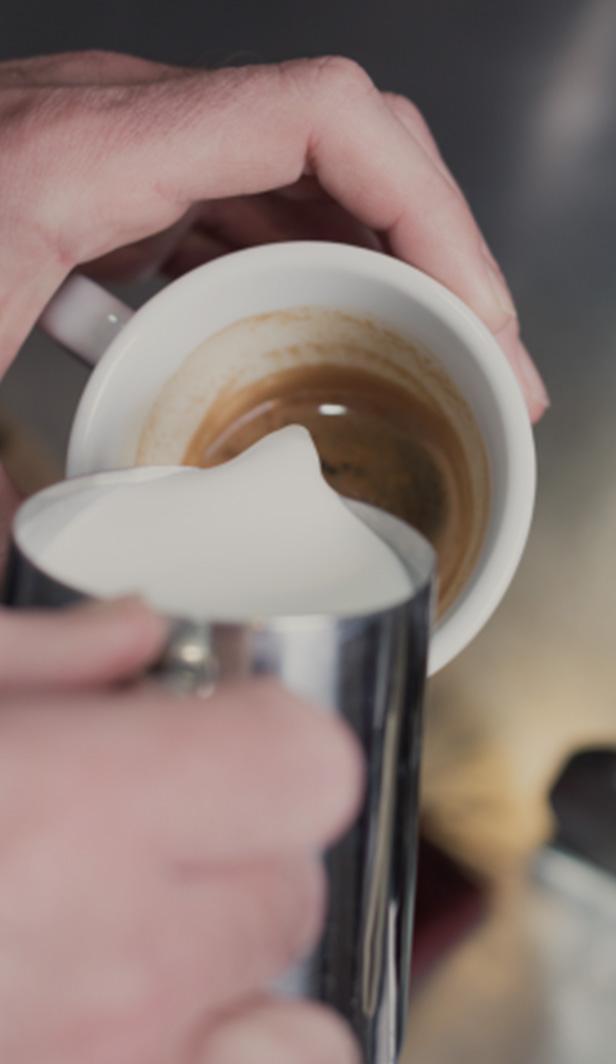What is an Irish coffee?
Irish coffee has four main ingredients: coffee, Irish whiskey, sugar and cream. But there are many variations of this classic coffee drink, which we willl explore later.
When making an Irish coffee, it’s important to ensure the coffee is strong and the whiskey is Irish, as it’s simply not an Irish coffee if you use Scotch whiskey. The coffee drink is drunk through its creamy head. To ensure the cream floats on top of the coffee and doesn’t sink, you can whip or blend the cream before layering it on top of the coffee with a spoon. Learn how to make an Irish coffee here.
What an Irish coffee is made of

What an iced coffee is made of

What a latte is made of

What a cappuccino is made of

What an americano is made of

What an espresso is made of

What a cortado is made of

What a mocha is made of

What a macchiato is made of

What a flat white is made of

Irish coffee history
Now that we understand what an Irish coffee is, let’s explore its origins and where it came from.
Whilst the idea of alcoholic hot coffee drinks has been around for some time, dating back to the mid-nineteenth century in Viennese, German and Denmark coffee houses. The Irish coffee, was said to have first been created in the 1940s by Joe Sheridan, chef at Foynes Port near Limerick, Ireland.
In 1943, a Pan Am flying boat flight to New York turned back to Foynes due to bad weather. Sheridan was asked to come back to the airport and prepare hot food and drinks for the passengers, who were feeling the winter weather. Sheridan whipped up a concoction that would warm up the passengers. When an American passenger asked if this concoction was a Brazilian coffee, Sheridan replied that it was an Irish coffee.
In 1951, travel writer Stanton Delaplane sampled Sheridan's Irish Coffee at Foynes Airport. He introduced this new coffee to Jack Koeppler, the owner of The Buena Vista hotel, and asked him to recreate this coffee. But, after many attempts, it still wasn't quite right. The taste was off and the cream kept sinking.
This encouraged Koeppler to visit the source himself and find out exactly how to make this coffee. He travelled to Joe Sheridan in Limerick, Ireland to learn the correct way to make this coffee.
On his return, Koeppler perfected the recipe that is still used at the Buena Vista today. Sheridan was also offered a job at The Buena Vista and he settled in San Francisco and worked at The Buena Vista for ten years.
Variations
When asking ‘what is an Irish coffee’, it’s not always easy to get a straight answer, as there are many variations of this coffee drink, often given the same name.
In Spain, Irish coffee can be served with a bottom layer of whiskey, a separate coffee layer, and a layer of cream on top. Often, special devices are used for making it. In Southeast Asia, you may see a cocktail of iced coffee and whiskey, sometimes without cream, under the name "Irish coffee" served. Gaelic coffee is very similar to Irish coffee, but instead of Irish whiskey, Scotch whiskey is used instead. And in Russia, instead of Irish whiskey, vodka is used.
Now we understand what an Irish coffee is, why not explore what a cortado is?

Today’s community favourites




